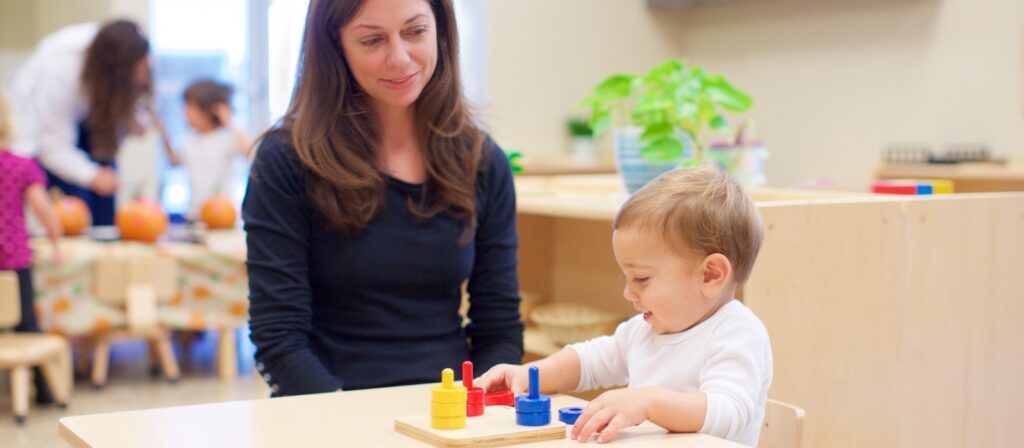By: Diba Patricia Ariani

Talking about the Montessori method of education, we must know that even Maria Montessori herself believed that education should be a pliable concept. It means education should be flexible. It can be adapted to meet not only the needs of the child but the constraints of the environment. When COVID – 19 pandemics hit in the early 2020 and the traditional face-to-face classroom was being restricted, many educators had little choice but to leverage electronic resources and move to distance learning. With the current public health issue resulting in school closures, this might arise a question such as whether or not Montessori – as hands-on learning – can be taught online.
Simply said, Montessori can be taught online. Even though for it to be effective, there might be some obstacles. It is because the Montessori method actually promotes distance learning quite well and here’s why.
One of the main characteristics of successful Montessori education is ‘self-paced learning’. In the Montessori method, children will perform best when they’re given the freedom to learn concepts on their timeline instead of by schedule. Self-paced learning is also one of the benefits of online learning. It shows how learners can navigate lessons independently and progress through content as they master the necessary skills in the online learning environment.
The next characteristic of the Montessori method is encouraging independence. The main point of Montessori education is “Follow the child”. Montessori teachers strive to facilitate autonomy in their students so they can enjoy self-guided learning. It will go in line with the online learning environment, which creates learning independence as students are given more control of their learning environments. With no teacher physically looking over their shoulders they have to be responsible for their learning.

We all know that Montessori had advocated for a high level of parental involvement in the education of young children. Since distance learning takes place mostly within the home environment, it provides a place for parents to join their children as true partners in the education process. It also removes any physical barriers to the parental involvement that children need while learning new things or concepts. It is one place where online learning and Montessori values intersect.
Of course, there may be some doubts on the effectiveness of virtual learning since Montessori has the belief that children learn by touching, manipulating objects, and ‘doing’. Hence, hands-on learning is one of the concepts people commonly associate with the Montessori approach. Here is where teachers need to create new concepts and tools as to how tactile learning can fit into the distance learning environment. Thanks to advancements in educational technology, online learning doesn’t have to be a passive experience.
On the contrary, children in the online learning environment can participate as much in hands-on activities as they would in the traditional face-to-face classroom. A little creative touch from teachers will also let students take active learning to an entirely different level using advanced technology.
Lastly, since parents become liaisons between teachers and children and act as facilitators as their children practice new concepts, teamwork is needed between teachers and parents. In order to get distance-learning works within a Montessori environment, teachers must also provide parents with resources and strategies as they accompany their kids mastering new concepts.
Source:
Brown, Katie. 2021. Montessori Teachers Adapt to Distance Learning. https://www.montessoripublic.org/2021/02/montessori-teachers-adapt-to-distance-learning/
London College of Teacher. 2020. Montessori Teacher Training in Distance Learning: Is It Worth? https://www.londoncollegeofteachers.com/blog/montessori-teacher-training-in-distance-learning-is-it-worth/


